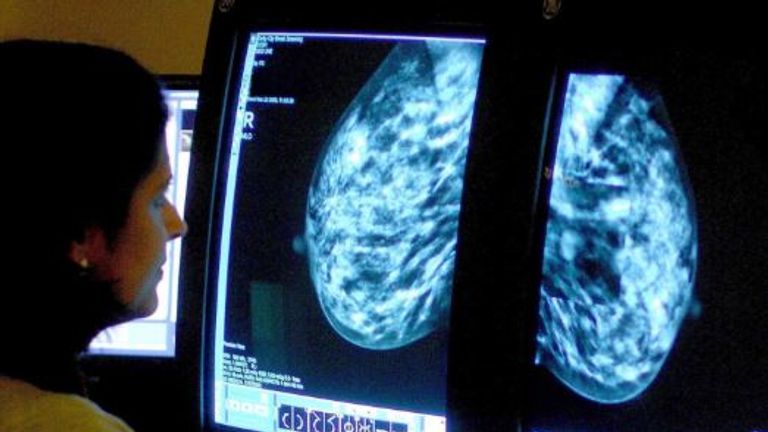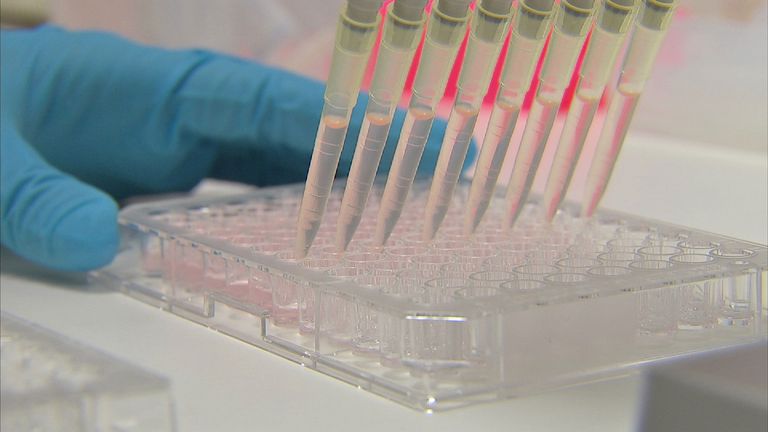Scientists have found that DNA errors linked to an increased risk of breast cancer affect five times as many genes than were previously known.
Researchers discovered 371 errors they believe with “reasonable confidence” target 352 genes, fewer than a fifth of which were previously recognized.
The international study – published in the journal Nature Genetics – compared to the DNA of 365, breast cancer patients to that of around (****************************************************, healthy controls.
It found that a third of the genetic variants discovered increase the likelihood of women developing hormone-responsive breast cancer.
This affects around four out of five breast cancer patients, and can be treated with hormonal treatments such as tamoxifen.
Fifteen percent of the variants experts found predispose women to the rarer “estrogen-receptor-negative” breast cancer, while the remaining variants are linked to both types.
Breast cancer is a polygenetic disease, which means it is not caused by a single genetic variant or gene but is made more likely when a combination are present.

Previous research has found 191 areas in the genome that contain genetic changes that affect breast cancer risk, but experts have rarely been able to pinpoint the specific variants and genes involved.
Each variant on its own increases the risk of developing the disease by a tiny amount.
But, added together, they give women a clearer picture of their genetic risk and the best strategies to prevent its onset, the Researchers said.
Dr Alison Dunning, from the University of Cambridge, said: “This incredible haul of newly-discovered breast cancer genes provides us with many more genes to work on, most of which have not been studied before.
“It will help us build up a much more detailed picture of how breast cancer arises and develops. But the sheer number of genes now known to play a role emphasises how complex the disease is. “

It comes after a separate study – by a team from University College London (UCL) – found a group of cells that play a role in the body’s immune response could hold the key to “more effective” cancer treatments.
Scientists found that “T cells” – a subset of white blood cells – are activated to kill cancer cells after an experimental study of immunotherapy in mice.
:: Listen to the Daily podcast on (Apple Podcasts) ****************, Google Podcasts, Spotify
(Apple Podcasts) ****************, Google Podcasts, Spotify ,Spreaker
,Spreaker
(Immunotherapy is a form of cancer treatment that uses the power of the body’s own immune system to prevent, control, and get rid of the disease.
While T cells are good at finding and killing infected cells, they do not recognize most cancers because tumors develop from body tissue and appear normal to T cells.
The main challenge with T cell immunotherapy is to find ways to direct T cells to attack cancer cells.
Professor Sergio Quezada, of the UCL Cancer Institute who co-authored the study, said: “We knew these immune cells had the ability to proactively kill cancer cells with incredible potency, but to maximise their potential, we needed to know how this mechanism was act ivated. “
The study, funded by Cancer Research UK, is published in the journal Immunity.
 **************************Read More
**************************Read More ************************
************************





GIPHY App Key not set. Please check settings